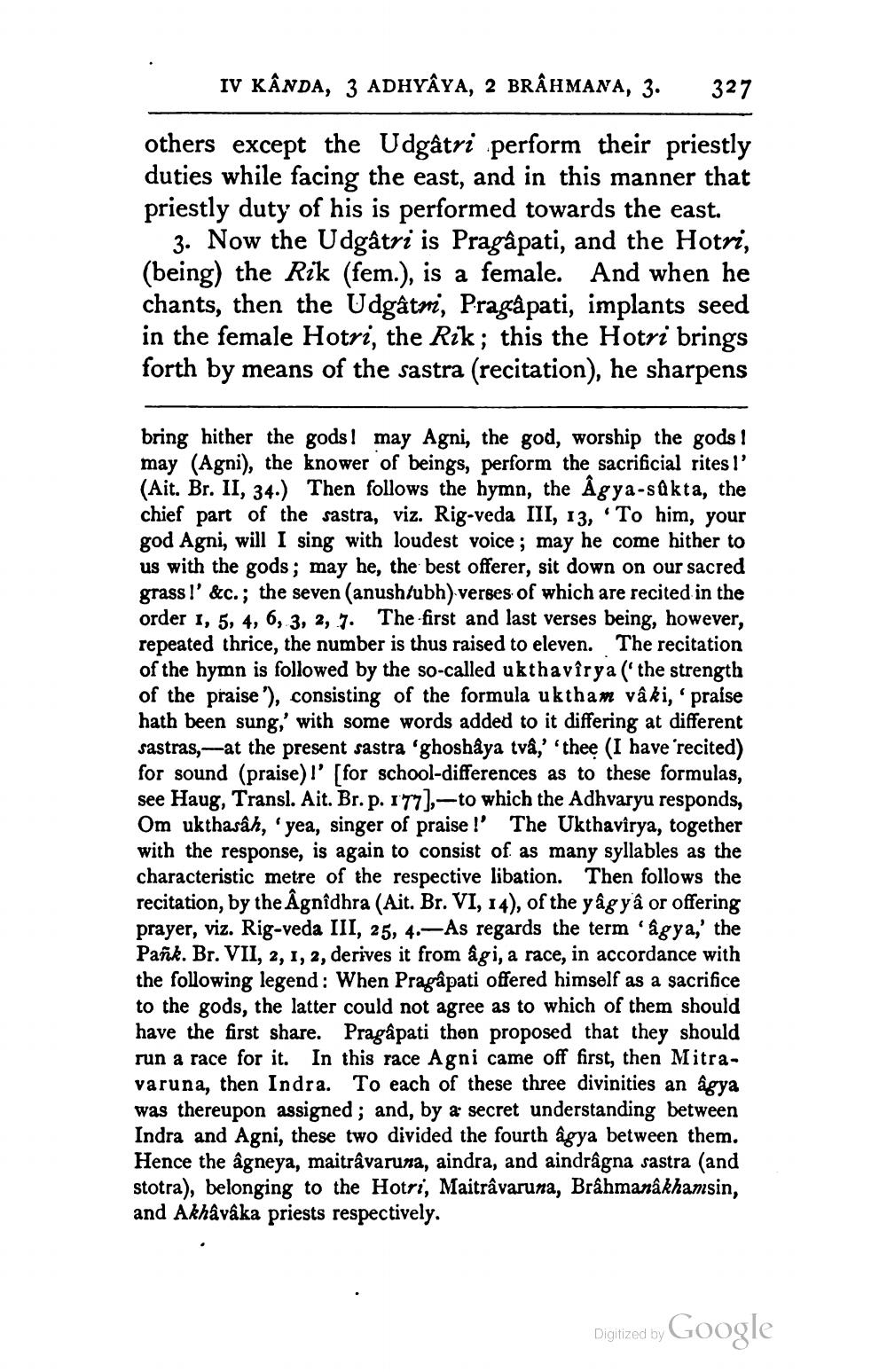________________
IV KÂNDA, 3 ADHYAYA, 2 BRÂHMANA, 3.
327
others except the Udgâtri perform their priestly duties while facing the east, and in this manner that priestly duty of his is performed towards the east.
3. Now the Udgâtri is Pragâpati, and the Hotri, (being) the Rik (fem.), is a female. And when he chants, then the Udgâtri, Pragâ pati, implants seed in the female Hotri, the Rik; this the Hotri brings forth by means of the sastra (recitation), he sharpens
bring hither the godsl may Agni, the god, worship the gods ! may (Agni), the knower of beings, perform the sacrificial rites l' (Ait. Br. II. 34.) Then follows the hymn, the Âgya-sakta, the chief part of the sastra, viz. Rig-veda III, 13, To him, your god Agni, will I sing with loudest voice; may he come hither to us with the gods; may he, the best offerer, sit down on our sacred grass !' &c.; the seven (anushtubh) verses of which are recited in the order 1, 5, 4, 6, 3, 2, 7. The first and last verses being, however, repeated thrice, the number is thus raised to eleven. The recitation of the hymn is followed by the so-called ukthavîrya ('the strength of the praise), consisting of the formula uktham vâki, praise hath been sung,' with some words added to it differing at different sastras,-at the present sastra 'ghoshầya två,''thee (I have 'recited) for sound (praise)l' [for school-differences as to these formulas, see Haug, Transl. Ait. Br. p. 1771,--to which the Adhvaryu responds, Om ukthasah, yea, singer of praise!' The Ukthavirya, together with the response, is again to consist of as many syllables as the characteristic metre of the respective libation. Then follows the recitation, by the Agnîdhra (Ait. Br. VI, 14), of the yag yâ or offering prayer, viz. Rig-veda III, 25, 4.-As regards the term 'âgya,' the Pank. Br. VII, 2, 1, 2, derives it from agi, a race, in accordance with the following legend: When Pragâpati offered himself as a sacrifice to the gods, the latter could not agree as to which of them should have the first share. Pragâpati then proposed that they should run a race for it. In this race Agni came off first, then Mitravaruna, then Indra. To each of these three divinities an agya was thereupon assigned; and, by a secret understanding between Indra and Agni, these two divided the fourth âgya between them. Hence the âgneya, maiträvaruna, aindra, and aindragna sastra (and stotra), belonging to the Hotri, Maitrâvaruna, Brâhmanâkhamsin, and Akhâvâka priests respectively.
Digitized by Google




